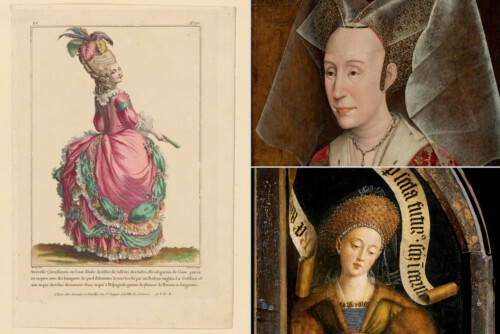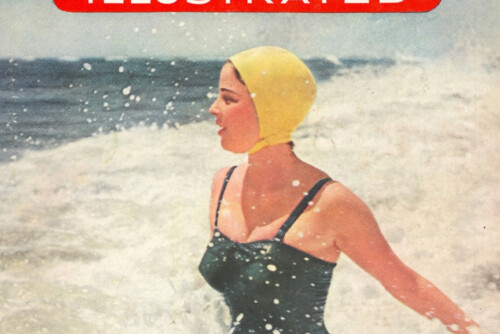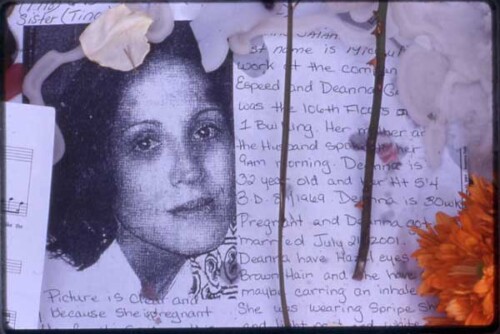Yet all around me I saw the consequences of that sexual void. Our movements were full of broken hearts and twisted spirits, people who were hurt, who had no tools to confront their own sexual ignorance or need for passion. Their erotic activities (or lack thereof) and partnerships were constrained by the boundaries of their new political values, and they felt that their own desires mattered only in the context of the movement in which we lived. In practice, this resulted in a small worldview, small politics. I began to hate myself there, to hate what I saw around me.
I thought the beginnings of “gay liberation” would fill that void and remove the limitations of revolutionary vision and action. And, at first, it did. Being openly queer was so marginalized then that the other radical ideas we debated about sex and desire, gender identity, non-monogamy, and our notions of creating a revolutionary, sex-positive, erotic culture, were conversations we took very seriously. It was an astonishing time.
But even then, we made people nervous. And even then and even in the queer leftist movements, we were generally seen as an unwelcome sexual minority. For us—the drag queens, stone butches, S/M lesbians and leather men, high-femme dykes and queer sex workers, radical fairy boys and bisexual activists, and others too strange to name or categorize—we were too outside the norms established even by “gay” standards to be included. We stood out! We represented what other, more traditional queer people feared. We weren’t exactly banished; we were passively tolerated. Because the other reality back then was that we all still had to go to the same areas of town, to the same clubs and bars, the same meeting places (except for those, of course, who were extremely rich). We all shared the geography of the sexual outsider. Sure, those of us who most explicitly showed our erotic desires and gender identities were seen as an embarrassment, but being queer then was frankly so despised that everyone, both inside and outside the zone, understood that, while there were queer and queerer-still levels of deviance, we were all swimming together in the same “homosexual” pool of depravity.
Still, for a moment there, sex and desire, and the idea that these issues were political, had its tiny second of credibility and power. Those of us who were radicals understood the ideas of revolution, of the need for fundamental, anticapitalist change, and we were dammed if we were going to be left out one more time. It was a brief moment full of brilliant discussion and passionate consecration of our most forbidden desires, and we were fierce in our attempts to hold and create new ground. This book is a result of that moment in time.
And then came AIDS. A tragedy, a devastation unlike anything we had ever seen or imagined; and it ushered in a time when desire and sexual acts became demonized, yet again, in ways we had only just begun to resist. I won’t retrace more of that history except to say that we were courageous, and we confronted the terrible anguish in our communities, and we helped one another. And even then, even while being made into sexual pariahs, gay men and drag queens and dykes and queer men of color and their sisters and brothers, and other communities of sex and racial justice warriors, spoke up and spoke out for sex, struggling to claim the right to desire even in the face of an epidemic and a virus transmitted through sex. We refused to be shamed or disowned because of our desires or our antibody status. This was a truly terrifying time. But through it all—although we were frequently wrong—we were also brilliant, and we were brave.
The epidemic continues today, of course, although HIV and AIDS are too often absent from the current lists of LGBT political priorities. But as the epidemic thrives now in this country through the vulnerabilities resulting from racism and the history of oppression in communities of color, those who struggle today with HIV and AIDS are often poor and queer, or transgender, or immigrants, or all of the above. For these members of our communities, the thrust of activism and radical political action has almost disappeared. Because now AIDS is about queerness in the context of poverty, of prison life, of drug use and addiction, immigration status, homelessness. The mostly white, middle-class LGBT movement of today does not see this as their issue or their priority. In the current LGBT equality movement, we fight to get married to each other in big churches, and to serve in the US military, because we think some sort of legislated equality will be enough, will be all that we have a right to ask for or get, and if we can finally attain the status of “normal” we’ll have arrived—well, almost—and that that will be enough for us. But then, of course, it becomes even more important to never, ever, seem too queer.
That is why this fight for sex and for the importance of desire matters now more than ever. The people who always pay the highest price for their desires are those of us who are the most queerly configured, whose lives are often trapped in poverty, ensnared in the rampant neglect fomented by racism and gender standards; those of us who are too old or too young, too sexual or too marginal, to count. It brings me back to the question of being alone and deserted in one’s own sexual shame, ignorance, and suffering. It is why this battle for the importance of passion and the freedom to explore sexual desire matters, why it is critical that, this time, we insist on struggling politically for the power and significance of the erotic as an essential component of our liberation struggle. It is why I believe that movements for human freedom must claim and fight for human sexual desire and for the hope which springs from eros.
Human liberation movements are embedded in the lives, struggles, and hopes of the people who are a part of them. The reality is that political struggles must include human sexualities and gendered identities, and understand what is done in and through those identities and erotic acts, as an important part of what will be fought for to create a new world.
Desire is inseparable from what we want, whom we seek out, and it often reveals who we are and where we have come from. When I look at pictures of my father and my mother and then of my lovers, I see myself, my partners, the ways I’ve combined and transformed the many different components of my reality into a unique sexual and erotic life. It is what I understood and then grew through so that I could travel beyond my parents’ erotic identities and failures. I am surely their daughter—a mixed-race, poor, white-trash, bio girl gone wrong—because even more than the transracial eros which marked them and me, I am their child: born of and to transgression, and containing within me a dangerous, life-altering, life-engaging set of choices about the possibilities and the price of desire. I live that history, their history, in my body, in what I want and what I do with my lovers, in whom I need to desire me and what I need them to do to me. I rest on their desires as they ride on mine, starting there but risking everything to go somewhere beyond. This is the framework; this is the resistance.
No political movement succeeds without desire: desire for justice, for democracy, for freedom, for the wild ideals of starting over again with a new set of values and possibilities. Our success will depend on how much of this vision we bring to the table this time. Let it be clear: it is essential that who we are as sexual people matters fundamentally to the world we seek to create anew in this vortex of transformation. Finally, let sex and desire be truly significant and alive in our politics, without compromise or condescension. Finally, this time, let us create a movement brave enough to let it matter. Perhaps this time, then, we can finally explode—with a vision and a power strong enough, bright enough, large enough, to change the world.



